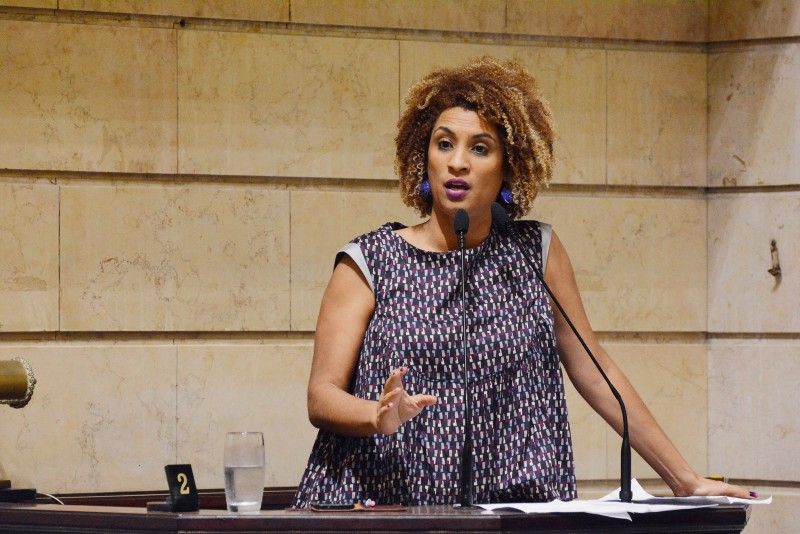March 20, 2018
Last Wednesday night in Rio de Janeiro, a 38-year old gay black single-mother from one of the city’s largest favelas was shot to death, along with her driver, by two unknown gunmen.
In a city where violence has reached epidemic proportions, those details alone might have gone unnoticed except that this particular woman was Marielle Franco (pictured above), a popular first-term city councilwoman and outspoken advocate for the human rights of women and minorities. Franco had been particularly passionate on the subject of violence by Rio’s famously trigger-happy police — long a subject of international human rights concern.
The incident has quickly taken on national political dimensions, as thousands have hit the streets across Brazil to mourn Franco’s death and demand accountability. The government is under pressure to find out who ordered the killing — suspicion is rampant that it was a message from disgruntled policemen or illegal militias composed of ex-officers.
Moreover, the federal government recently sent the military to take control of security in Rio. Franco’s killing makes it look like the army isn’t doing a great job, and public support for the intervention has fallen since last week, though it’s still at 71 percent.
Lastly, because of who she was and what she stood for, her murder brings together three third-rail issues in Brazil — security, race, and poverty — as the country heads for a pivotal election in which anti-establishment anger is running high, polarization is extreme, and one of the leading candidates, former army-man Jair Bolsonaro, has said that cops aren’t cops unless they kill people. A volatile brew in what is already a deeply uncertain political climate.
More For You
- YouTube
Singapore’s President Tharman Shanmugaratnam tells Ian Bremmer on GZERO World that his country will feel the impact of AI sooner than most, but the government believes it can be a boost for workers, not a threat.
Most Popular
- YouTube
Singapore was one of globalization’s biggest beneficiaries. Ian Bremmer looks at whether the city-state can survive in a world where the economic order that drove Singapore's rapid rise starts to unravel.
A flood victim stands at her flooded home after weeks of heavy rainfall in Boane District, Maputo, Mozambique, January 19, 2026.
REUTERS/Amilton Neves/File Photo
392,000: The estimated number of people displaced across Mozambique by recent rain-induced floods. Severe flooding in the southern African nation, as well as in South Africa and Zimbabwe, has killed over 100 people.
© 2025 GZERO Media. All Rights Reserved | A Eurasia Group media company.
